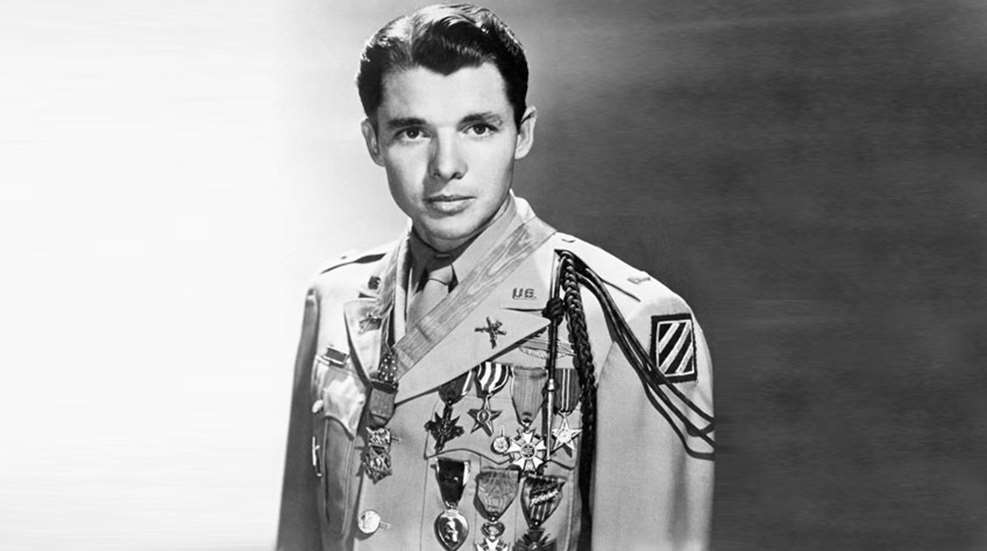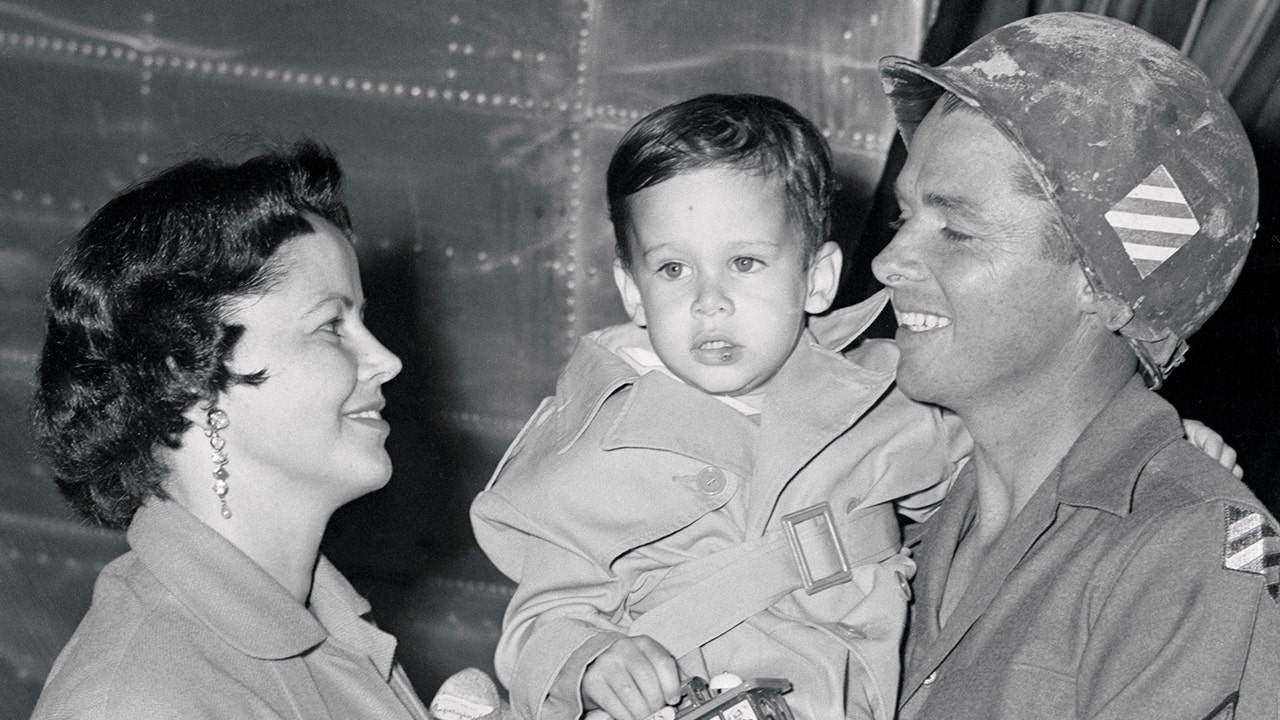
Audie Leon Murphy, born on June 20, 1925, in Hunt County, Texas, is one of the most decorated and legendary figures in U.S. military history. His remarkable service during World War II, which earned him every major U.S. military decoration, along with honors from France and Belgium, cemented his place as a true American hero.
But Murphy’s legacy extends beyond the battlefield. His perseverance, courage, and spirit in the face of unimaginable adversity after the war make him a symbol of the indomitable American spirit.
His journey, from a difficult and tragic childhood to becoming the most decorated soldier in World War II, is a testament to the power of resilience and determination.
A Turbulent Childhood
Murphy's early life was filled with hardship. Born into a poor family, his father abandoned the family when he was just a young child, and his mother passed away when he was a teenager.
These early losses had a profound impact on him. In his own words, Murphy recalled, "She passed away when I was 16. She had the most beautiful hair I’ve ever seen. It was almost as long as the ground. She rarely spoke, and it seemed like she was always searching for something.
Something I didn’t understand. We didn’t talk about feelings. But when she passed, she took something with her. Maybe I’ve been searching for that ever since."
At the age of 16, after the death of his mother, Murphy was left to fend for himself. He dropped out of school in the fifth grade to support his family, working odd jobs such as picking cotton.
His skill as a hunter helped put food on the table, and he did whatever he could to make ends meet. This difficult beginning would shape his character and serve as the foundation for his future accomplishments.

Joining the Military
Murphy had always dreamed of becoming a soldier. After the attack on Pearl Harbor in 1941, he felt a deep sense of duty to fight for his country. However, his initial attempts to enlist were met with rejection.
Both the Army and Navy turned him down because he was too young and too small. Undeterred, he relied on his sister to help him falsify his birth date, allowing him to join the U.S. Army in 1942. After undergoing basic and advanced training, Murphy earned the Sharpshooter Medal, signaling his exceptional marksmanship skills.
In February 1943, Murphy was sent to the Mediterranean theater, where he participated in several campaigns in Italy. He fought in key operations, including the landings in Sicily and Salerno.
By December 1943, he had been promoted to second lieutenant due to his leadership and bravery. His exemplary performance in the field, including a mission where his squad destroyed a German tank crew with grenades, earned him multiple awards and recognition.

Heroism in Combat
The turning point in Murphy’s military career came during the Allied invasion of southern France in August 1944. After landing near Ramatuelle, Murphy and his squad were ambushed by German forces while crossing a vineyard. Despite being outnumbered, Murphy quickly took control, using a machine gun to eliminate two enemies and wound another.
As he and his squad approached a house, two German soldiers emerged, seemingly surrendering. However, they suddenly opened fire, killing Murphy’s best friend. Enraged and undeterred, Murphy charged the house alone, killing six enemy soldiers, wounding two, and capturing 11 prisoners.
On October 2, 1944, during the Battle of L’Omet, Murphy displayed more of his unparalleled courage. In a brutal firefight with a German machine gun nest, he killed four German soldiers and wounded three more.
Just days later, he single-handedly crawled toward the German position with a radio in hand, directing artillery fire while under heavy enemy fire. His actions resulted in the death of 15 German soldiers and the wounding of 35 others. These feats of bravery were only a glimpse of what would soon become the legendary tale of Audie Murphy.
The defining moment of Murphy’s military career occurred in January 1945 during the battle for the Colmar Pocket. German forces had occupied a key area in France, and the Allies were determined to push them out.
On January 26, while leading his men in an assault on the town of Holtzwihr, Murphy was wounded in both legs. Despite his injuries, he continued to lead his men and refused to retreat.
When a German anti-tank gun fired directly at his position, Murphy’s tank crew was forced to abandon their vehicle. Murphy, displaying extraordinary valor, remained behind to direct fire from a nearby machine gun and artillery.
Climbing atop the burning tank, he single-handedly repelled the enemy forces, killing several German soldiers and forcing them to retreat. His actions resulted in the deaths of at least 50 German soldiers and the wounding of many more.
For this incredible display of courage, Murphy was awarded the Medal of Honor. On May 3, 1945, at the height of the battle, he was promoted to first lieutenant, and his reputation as one of the greatest heroes of World War II was solidified.

Post-War Struggles
After the war, Murphy faced new battles—ones that were psychological and emotional. Like many veterans, he struggled with the trauma of combat and the horrors he witnessed.
He experienced what would later be recognized as post-traumatic stress disorder (PTSD), often waking in the night with the memory of the war and, at times, sleeping with a loaded pistol under his pillow. His first wife, Wanda Hendrix, spoke of his struggles, saying that he sometimes pointed a gun at her in his sleep, caught in the grip of his nightmares.
Despite his internal struggles, Murphy continued to work for the betterment of his fellow veterans. He became a staunch advocate for the rights of soldiers returning from the Korean War and the Vietnam War, pushing for better care and mental health treatment for veterans suffering from the same trauma he had endured.
A Career in Hollywood
In addition to his advocacy for veterans, Murphy embarked on a career in acting, appearing in over 20 films. His most notable role came in 1955 when he portrayed himself in the film To Hell and Back, based on his memoir of the same name. The film was a success and cemented his status as a national hero in the eyes of the American public. He also appeared in several other films throughout the 1950s and 1960s, but despite his success, he never seemed to find the peace he was searching for in Hollywood.

Tragic End
Audie Murphy's life came to a tragic end on May 28, 1971, when he died in a plane crash in Virginia. The small plane, carrying Murphy and several others, crashed into Brush Mountain during inclement weather.
His death at the age of 45 was a great loss to the nation, but his legacy lives on. Audie Murphy was buried with full military honors at Arlington National Cemetery, a final resting place befitting one of the greatest heroes America has ever known.
In recognition of his sacrifices, bravery, and service, the Audie L. Murphy Memorial VA Hospital was established in San Antonio, Texas. The hospital stands as a testament to the impact he had on the lives of countless veterans and the nation as a whole.
A Lasting Legacy
Audie Murphy remains a symbol of American heroism. His bravery in battle, his resilience in the face of post-war struggles, and his advocacy for veterans all contribute to his lasting legacy.
He is remembered not just as a decorated soldier, but as a man who lived through adversity, fought for his country, and never backed down from a challenge, no matter how insurmountable it may have seemed.
Audie Murphy’s story is a story of courage, sacrifice, and patriotism, qualities that are at the heart of what it means to be an American. His legacy continues to inspire future generations to act with honor, to serve selflessly, and to never lose sight of the values that make this country great.
-1749549823-q80.webp)
-1749719291-q80.webp)
-1749722809-q80.webp)
-1749718726-q80.webp)